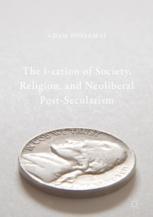

Most ebook files are in PDF format, so you can easily read them using various software such as Foxit Reader or directly on the Google Chrome browser.
Some ebook files are released by publishers in other formats such as .awz, .mobi, .epub, .fb2, etc. You may need to install specific software to read these formats on mobile/PC, such as Calibre.
Please read the tutorial at this link: https://ebookbell.com/faq
We offer FREE conversion to the popular formats you request; however, this may take some time. Therefore, right after payment, please email us, and we will try to provide the service as quickly as possible.
For some exceptional file formats or broken links (if any), please refrain from opening any disputes. Instead, email us first, and we will try to assist within a maximum of 6 hours.
EbookBell Team

4.7
106 reviewsThis book explores the elective affinity of religion and post-secularism with neoliberalism. With the help of digital capitalism, neoliberalism dominates, more and more, all aspects of life, and religion is not left unaffected. While some faith groups are embracing this hegemony, and others are simply following the signs of the times, changes have been so significant that religion is no longer what it used to be. Linking theories from Fredric Jameson and George Ritzer, this book presents the argument that our present society is going through a process of i-zation in which (1) capitalism dominates not only our outer, social lives (through, for example, global capitalism) but also our inner, personal lives, through its expansion in the digital world, facilitated by various i-technology applications; (2) the McDonaldization process has now been normalized; and (3) religiosity has been standardized. Reviewing the new inequalities present in this i-society, the book considers their impact on Jurgen Habermas’s project of post-secularism, and appraises the roles that various religions may have in supporting and/or countering this process. It concludes by arguing that Habermas’s post-secular project will occur but that, paradoxically, the religious message(s) will be instrumentalized for capitalist purposes.